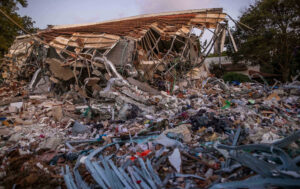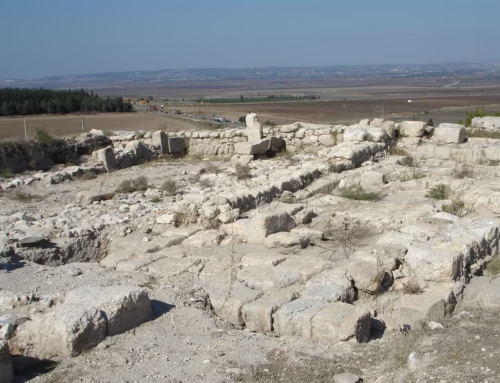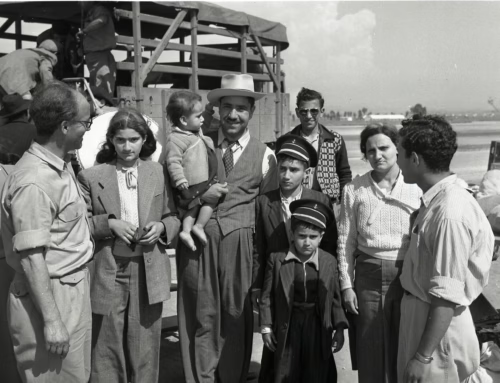Israel’s battle with Iran-backed terrorist groups
On 1 April 2024, an airstrike destroyed a building next to the Iranian consulate near the Iranian embassy in Damascus killing a senior Iranian Islamic Revolutionary Guard Corps (IRGC) commander and seven other IRGC officers. Prior to the Islamic Revolution Iran was a friend of Israel and one of the first Muslim countries to recognize Israel as a state.

Supported by Iran, Hamas has launched over 13,000 rockets at civilian targets in Israel in the past 6 months. The photo shows the ruins of a house in Kibbutz Be’eri after October 7. Photo: Oren Ben Hakoon
Sweden’s Parliament voted to designate the Iranian military force, the Islamic Revolutionary Guard Corps (IRGC), as a terrorist organization in May 2023. The European Parliament passed a resolution in January 2024 calling on the EU and member states to designate Iran’s Revolutionary Guard a terrorist group. The US took the same decision to define the IRGC as a global terrorist organization in 2019.
Iran controls and finances several of the terrorist organizations in the Middle East that are currently attacking Israel. In Gaza, they support Hamas and Islamic Jihad both of which actively participated in the October 7 massacre and that have since fired over 13,000 missiles at civilian targets in southern Israel.
From southern Lebanon, Iran-backed Hezbollah has fired over 3,000 rockets at civilian targets in northern Israel since October 7. As early as 2018, the Center for Strategic and International Studies (CSIS) compiled a report on Hezbollah’s missiles and rockets stating that it had an arsenal of over 130,000 projectiles.
Terrorist group and Proxy for Iran
The Houthi movement is another terror group acting as a proxy for Iran. Their slogan is “Allah is greatest. Death to America. Death to Israel. Cursed be the Jews. Victory to Islam”. Since the start of war between Israel and Hamas, the Houthis have launched missiles at Israel and attacked Western ships off the coast of Yemen in the Red Sea to back up Hamas and its war on Israel. In January, the US and UK carried out airstrikes against several Houthi targets in Yemen.
Israeli embassies are “no longer safe”, warned Yahya Rahim, a senior adviser to Iran’s Supreme Leader Ayatollah Ali Khamenei, following the attack on the building next to Iran’s consulate in Damascus, Syria, which Israel is believed to be behind. Iranian officials have repeatedly sworn vengeance for the attack. The government of Israel has called on its embassies around the world to remain closed, and the embassy in Stockholm has therefore chosen to follow the call. Israel is reported to be keeping approximately 30 embassies closed due to the threat of revenge following the strike in Syria.
Good relations for 25 years
From 1953 relations between Iran and Israel were good but then deteriorated after the Iranian Revolution of 1979. Iran voted against the UN partition plan but was the second Muslim-majority country to recognize Israel as a sovereign state after Turkey.
After the Islamic Revolution, Iran severed all diplomatic and commercial relations with Israel and its leadership does not recognize Israel’s legitimacy as a state. Iran’s funding of Islamist terror groups such as Hezbollah, Islamic Jihad and Hamas has meant that Iran has led a proxy war against Israel that has affected geopolitics throughout the Middle East.



